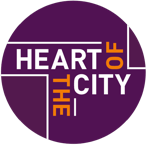Who’s your audience?
The first things to consider are:
- Who’s reading this?
- What do you want their key takeaway messages to be?
Some examples of your audiences might be future employees (so do you succinctly outline some of the opportunities available to people, such as volunteering days and flexible hours?), potential customers (do you clearly communicate your responsible business commitments?), existing suppliers (do you have a statement about working with local suppliers?) and current employees (are your internal comms engaging and varied?)
You should make sure you can adapt your messages to different audiences. Some people will be motivated by testimonies and photos from people who’ve benefited personally from your charity partnership. Others will want something less emotive like a business case about how responsible business makes a practical difference, and others will want something sparky and funny, and will be more interested in activities you’re doing rather than charities you’re supporting.
Internal comms
- Use your processes. Talk about your responsible business programme during inductions – your graduate intake and new joiners are likely to be very keen to get involved. Similarly, building responsible business into appraisals will make people think more about the opportunities you’re offering. Try to piggyback onto existing comms that you know are well read. Get a link to your responsible business page in weekly emails from the CEO and hand out information about the programme with payslips.
- Make it relevant. Talk about the business benefits of your activities such as a reduction in energy costs and keeping your employees for longer. To avoid comms overload, tailor your messages to specific departments (e.g. IT volunteering emails to the IT department) or get people to sign up to receive emails about your responsible business programme – and once they’ve signed up, ask them to refer a friend!
- Use your people. Feature endorsements from your senior leaders. Ask them what their experience in your responsible business activities has meant for them personally. Remember the value of face-to-face comms. Use your champions to get information out, perhaps in a regular slot at their team meeting, and ask them and volunteers to refer a friend.Use personal testimony from employees. Tell people about the benefits they’ve seen after taking part in your responsible business activities. It’s a good idea to ask them to refer to any hesitations they had about getting involved, and how these were confounded by taking part. Some employees may not have volunteered before and could feel uneasy about their ability to relate to the issues at stake. So, anyone who can help them feel more comfortable about it will be really useful, and hearing from a colleague they know will be particularly effective.
- Mix it up. Using a variety of media means you’ll reach the maximum number of people. Put up posters on the back of toilet doors and in communal areas, post regularly on your intranet, have a regular slot in the company newsletter, display photos from fundraising and volunteering events on noticeboards and hold information stalls in canteens.
- Establish your brand. Think about separate branding for your programme. This will help distinguish your comms from other corporate comms and will highlight your responsible business commitments.
- Use your partners. Capitalise on your charity partner’s comms skills. Ask them to present to your employees, talking about the difference your support is making in human terms.
External comms
- Use your website. Develop a responsible business page on your website for the public to see. You probably have an ‘about us’ section, so why not make a ‘responsible business’ section? Talk about your company’s social purpose and show how you’re doing well by doing good! Talk about your commitments and priority areas, and you could link them to the SDGs.
- Shout about your accreditations. Are you part of any responsible business networks or do you have any relevant accreditations? You’re definitely a part of Heart of the City, and we’ve made a badge you can display on your website! Other accreditations you might have are the Sunday Times Top 100 Companies, CIPD, London Living Wage, Investors in People, Stonewall Top 100 Employers, Mind’s workplace wellbeing index and the Social Mobility Employer Index. You might have won some awards in your industry, or maybe you’ve been recognised in the Dragon Awards.
- Make the comms work for you. Make sure it’s easy for you to talk externally about responsible business. Don’t include information that needs updating too often, use your website’s existing features like a newsfeed or Twitter widget, use video content (it doesn’t have to be too flashy – could you film some volunteers on your phone?) and display your headline figures through infographics (e.g. money raised, hours volunteered and beneficiaries helped)
Maintain your momentum!
- Have big events throughout the year, like volunteering days, and hold smaller events in between, like book sales
- Publish a programme of events in your newsletter and on your intranet
- Pace your events carefully to avoid ‘fundraising fatigue’
- Get your charity committee to meet monthly so you always have new ideas
- Celebrate employee support by sharing photos and sending thank you cards
- Hold an internal or external awards ceremony to recognise your fundraisers and volunteers
This was updated in June 2019 by Heart of the City. We’ve created these resources for individual SMEs to use. None of our content is to be adapted, reused or repurposed for commercial use.




